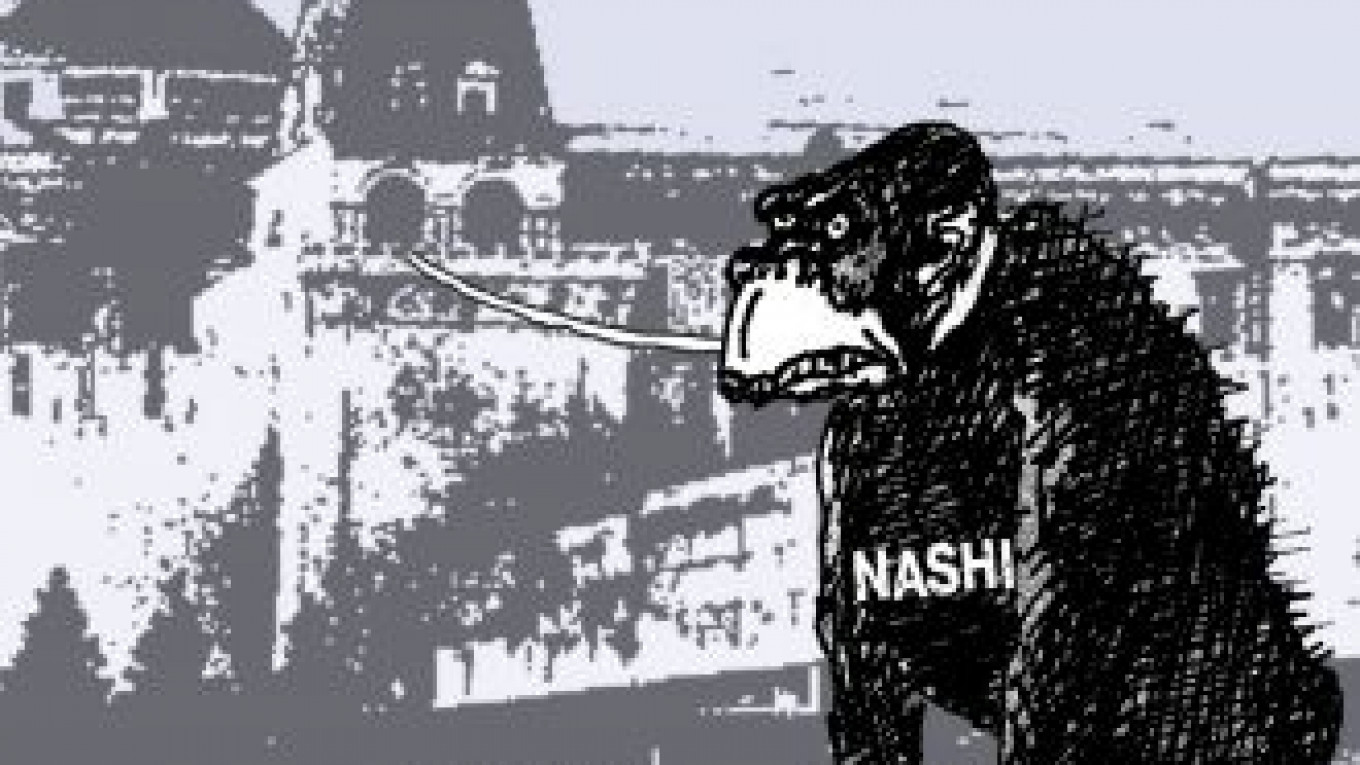Russia ended 2010 with an unprecedented upsurge of ultranationalist violence. Images of rioting, fascist-minded thugs on Manezh Square, steps away from the Kremlin walls, have dominated television broadcasts.
This violence began following an ordinary conflict between two small groups of young people over a taxi. One group consisted of young people from the North Caucasus, the other of Russian fans of a Moscow football club. Yegor Sviridov, an ethnic Russian, was murdered after a confrontation between the two groups turned violent.
The angry crowd on Manezh Square chanted nationalist slogans and then beat up passers-by who did not look Slavic. The next day, back on Manezh Square, beside the Tomb of the Unknown Soldier, a huge swastika appeared.
These events are not without precedent. In 2002, Moscow authorities mounted huge television screens on Manezh Square to broadcast a World Cup match between Russia and Japan. By the start of the game, tens of thousands of young fans were on the square, many of them drunk and agitated. When the final whistle sounded on a 1-0 victory for Japan, the infuriated crowd burst into spontaneous rioting and beatings.
Those events were preceded by a propaganda campaign in which government-controlled newspapers, television stations and radio broadcasters took part. It was decided to exploit the forthcoming world championship for “patriotic” purposes.
In pumping up football-induced hysteria, Russian politicians — headed by then-President Vladimir Putin — took the lead. The government had erected the television screens outside the Kremlin to ensure patriotic exultation of the victory that they assumed was coming. No one was prepared for defeat.
Clearly, careless manipulation by the authorities of patriotic sentiments has proved to be a risky business in the country. But the Kremlin still seems addicted to this means of buttressing its legitimacy among ordinary Russians.
Indeed, the vast popular protests that took place during the Orange Revolution in Ukraine five years ago convinced the Kremlin that they could not allow any spontaneous outburst of public emotions. Officials evidently decided that it is better to flirt with and try to control public passion than allow it to erupt on its own.
Frightened by the possibility of a “color revolution” breaking out in Russia, enormous resources were invested in Kremlin-friendly youth movements with two aims: control street political activity and prepare brigades for a future struggle — which might include ballot rigging — against political opponents. For this purpose, contingents of football fans were also used.
This sort of manipulation is now a Kremlin staple. Indeed, by coincidence, on the Sunday that Sviridov was murdered in Moscow, Kremlin first deputy chief of staff Vladislav Surkov met with Michael McFaul, the top adviser on Russia in the administration of U.S. President Barack Obama, as part of the Civil Society Working Group that they both head. That meeting was taking place as part of a gathering, led by Surkov, of Russian youth-movement activists.
One quote from Surkov that day is particularly telling: “Make ready for the elections, train your brains and muscles. You can always rely on our support.” Those muscles were put to use outside the Kremlin walls that very day.
To understand what is at stake, it is sufficient to consider the name of the main youth movement fathered by the Kremlin: Nashi, or “Ours.” It is difficult to invent a more potentially explosive moniker since the name proudly proclaims a division between “us” and “them.”
It is not surprising that special youth brigades fostered by the Kremlin regularly beat up activists of “not ours.” If the police detain Nashi members, a telephone call from the president’s administration follows, and the detainees are released. That is why the police fail to take tough action against rioting young thugs. Only when the Kremlin was seized by panic at the level of the disturbances that Nashi had initiated, did it demand that the police take control of events.
It is not clear yet whether the nationalist youth rebellion has been suppressed, but it is absolutely certain that the Kremlin’s unconstitutional activities — its division of citizens into “ours” and aliens and its flirtation with hard-core xenophobes — has led to serious social and political destabilization. In a society with a weakened immunity to extremism — coupled with an utterly dysfunctional government — the authorities are playing with fire.
Georgy Satarov is director of the Indem think tank. © Project Syndicate
A Message from The Moscow Times:
Dear readers,
We are facing unprecedented challenges. Russia's Prosecutor General's Office has designated The Moscow Times as an "undesirable" organization, criminalizing our work and putting our staff at risk of prosecution. This follows our earlier unjust labeling as a "foreign agent."
These actions are direct attempts to silence independent journalism in Russia. The authorities claim our work "discredits the decisions of the Russian leadership." We see things differently: we strive to provide accurate, unbiased reporting on Russia.
We, the journalists of The Moscow Times, refuse to be silenced. But to continue our work, we need your help.
Your support, no matter how small, makes a world of difference. If you can, please support us monthly starting from just $2. It's quick to set up, and every contribution makes a significant impact.
By supporting The Moscow Times, you're defending open, independent journalism in the face of repression. Thank you for standing with us.
Remind me later.






